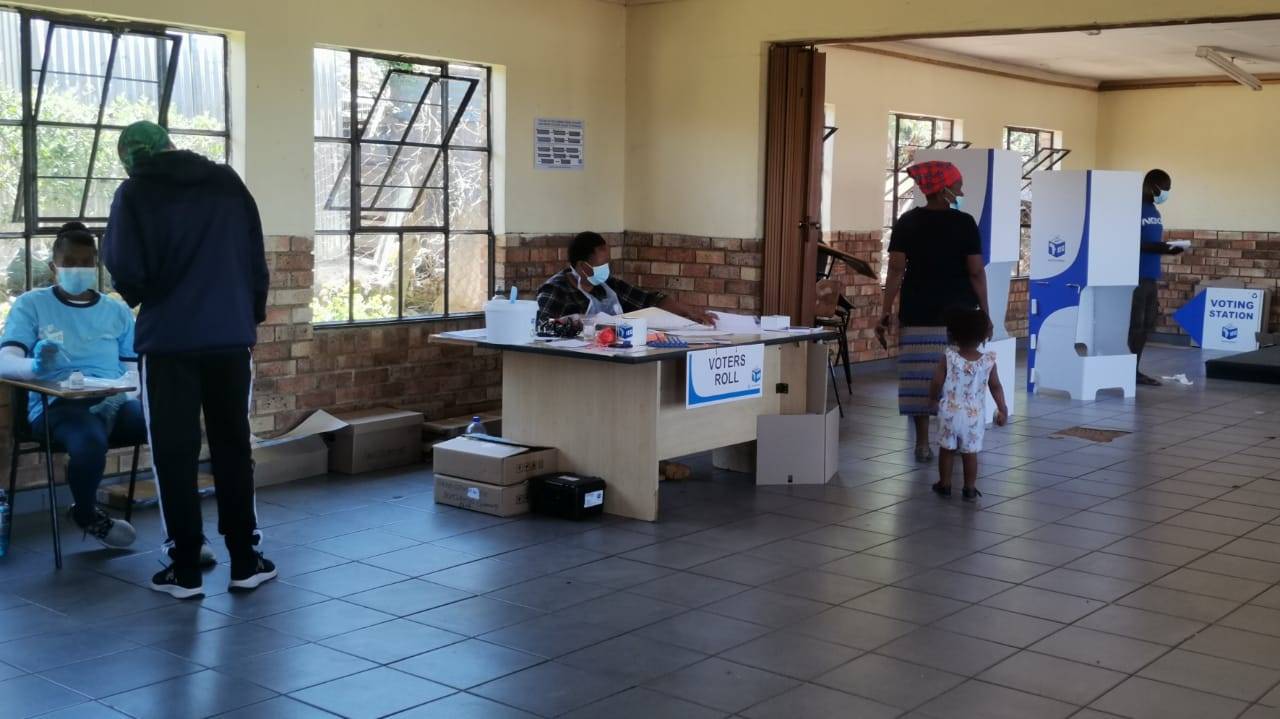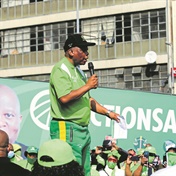
South Africans have spoken. They no longer have trust and confidence in the country’s constitutional democracy. The fact that the constitutional democracy remains fully secured on paper does not mean that it is of practical meaning to voters and citizens.
Well over 350 political parties and many independent candidates contested the local government elections. On the face of it, voters were spoilt for choice, but in real terms the voters may feel undermined by those who claim to represent the public interest when they could easily be job hunters.
The glaring reality of our political establishment is what has clearly become an obsession with power instead of service to the people.
READ: Setumo Stone | Is SA a failed state yet?
While political parties need power to serve the people, the real experience of the people may be lip service and lack of togetherness. The fact that political parties can hardly agree on one or two issues of common interest and are all about disagreeing on anything and everything may justify the perception that they do not have the public interest at heart.
The self-hate refrain is that black people do not take the vote seriously. This approach explains the trappings that colonialism and apartheid have caused to the mindset. It excludes the logic that black people have a right to refuse to be voting fodder and to vote for the sake of the formality, even if they do not agree with the status quo.
It is not clear why those who failed to uphold the constitutional obligations of a democratic state must be the ones dictating the interpretation of democracy to mean that people must vote at all costs even if there is nothing appealing to vote for.
READ: Zuma arrest not a factor in KZN vote decline – ANC
Voting for what is not appealing is an endorsement of what the voters do not want or agree with.
Loss of trust in the government
The true reason the majority did not vote may be in the fact that they accept a breach of the social contract by those they previously elected, or they see no hope of compliance with the social contract by those seeking their vote.
Voting is part of our constitutional scheme and is intended to give meaning to our constitutional democracy. It establishes legal relationships between the voters and those elected. Any form of non-compliance with a contractual or legal arrangement must produce consequences. The decision not to vote is one such consequence. Instead of attacking the voters for exercising their rights, we should be asking for accountability from those who use our constitutional framework for self-gain.
READ: IEC lambasts parties for premature announcements of results
The low voter turnout, which appears even worse than the 2016 low voter turnout, presents two pertinent questions. The first is whether we simply take it that those who did not vote did vote by abstaining and are therefore bound by the outcome of those who went to the polling stations. The second is whether we should be worried about what is clearly a trend of loss of trust and confidence in our government.
While no one can claim to have been physically prevented from exercising their democratic right to vote, we must be worried that a significant majority of the population may see voting as a waste of precious time and an exercise that serves no meaningful purpose. If that is the case, we must ask the pertinent question of how this majority will express itself if unhappy.
In the many past elections voters threatened to boycott the polls and they did so. We, nevertheless, had governments in place and assumed the legitimacy of such governments purely on the basis that they were democratically elected. The only basis for assuming their democratic qualification was because we argued that no one was prevented from voting.
Maybe this test needs to be revisited and a more realistic test formulated. Should the fact that voters were not physically prevented from voting be the only test of a democratic election? Should the fact that the voting public have lost trust and confidence in the political establishment not be the true test of whether or not our election is still legitimate and representative of the will of the people? Should we not be concerned at the declining voter turnout and its implications on whether the voting public still has an interest in holding public representatives accountable through lawful and democratic means? Should we brace ourselves for a season of unconstitutional and unlawful means of accountability?
Politicians must work together to earn the people’s trust
Many of the communities who did not vote have long expressed their grievances, most of which remain unattended. Political parties seem to believe that the voters must live on promissory notes which will not translate into real action. The parties may be missing the real point here.
READ: Survey shows nearly half of South Africans unhappy with who they voted for in 2016
The many years of failed promises, corruption, poor service delivery and an active patronage system is imprinted in the minds of the voting masses.
The assumption that poverty equates to stupidity is delusional. The assumption that the poor and unemployed will be persuaded by empty promises made during an election campaign, as if this is the first campaign, sounds a bit delusional.
The political parties who have been tearing each other apart and making all sorts of inflammatory statements and wild promises must now realise that they have not been taken seriously. They must now realise that their sparring did not resonate with the masses and must start working together on a national programme to address the concerns of the people.
The dangerous assumption that electoral education is part of the solution is also delusional. The masses voted in 1994 without any political education and have voted many other times.
To shift the blame to the voters is another delusion. The reality is that the masses have lost all hope. They have witnessed blatant corruption at their own expense and cannot relate to those stealing from them asking for another hand in their political marriage.
Councillors have constitutional power, but no real political power
The recent election campaigns were rather condescending and created an impression that any work to be done would be a favour.
The voters, who have constitutional and human rights, have every right to reject favours on matters of their constitutional and legal entitlement.
READ: We need to convince young people their vote counts
With this reality upon us, the obvious and pertinent question is: What is to be done?
The voters have spoken with their feet and elected to abstain. Does this election become legitimate in the face of a glaring rejection by the majority?
No councillor will have influence over a community that did not participate in his or her election. She or he may have the legal and constitutional power, but not the real political power and acceptance.
This means we have an alternative unelected government which may elect not to cooperate with an elected government. While in law the election remains lawful, in practice communities will see it as illegitimate and not based on their will.
The immediate task is to embark on a serious and meaningful consultation with communities to address their various challenges which have been raised over many years.
The second is for both provincial and national government to step up and ensure effective delivery of services to the people.
Mannya is an advocate and social commentator
| ||||||||||||||||||||||||||||||
 |




 Publications
Publications
 Partners
Partners










